
At Stuff Events, sustainability is a key priority across our events portfolio and we continue to make improvements to reduce each event’s environmental footprint.
Our sustainability journey began in 2015 when we partnered with a specialist waste management team, Clean Event, to help divert waste from landfill.
Our end goal is to have all hospitality site holders using compostable or reusable serviceware, gather accurate data to calculate our carbon footprint and create an action plan to reduce the event's carbon footprint in line with our overall emissions reduction and reach carbon neutral certification by the 2030 event.
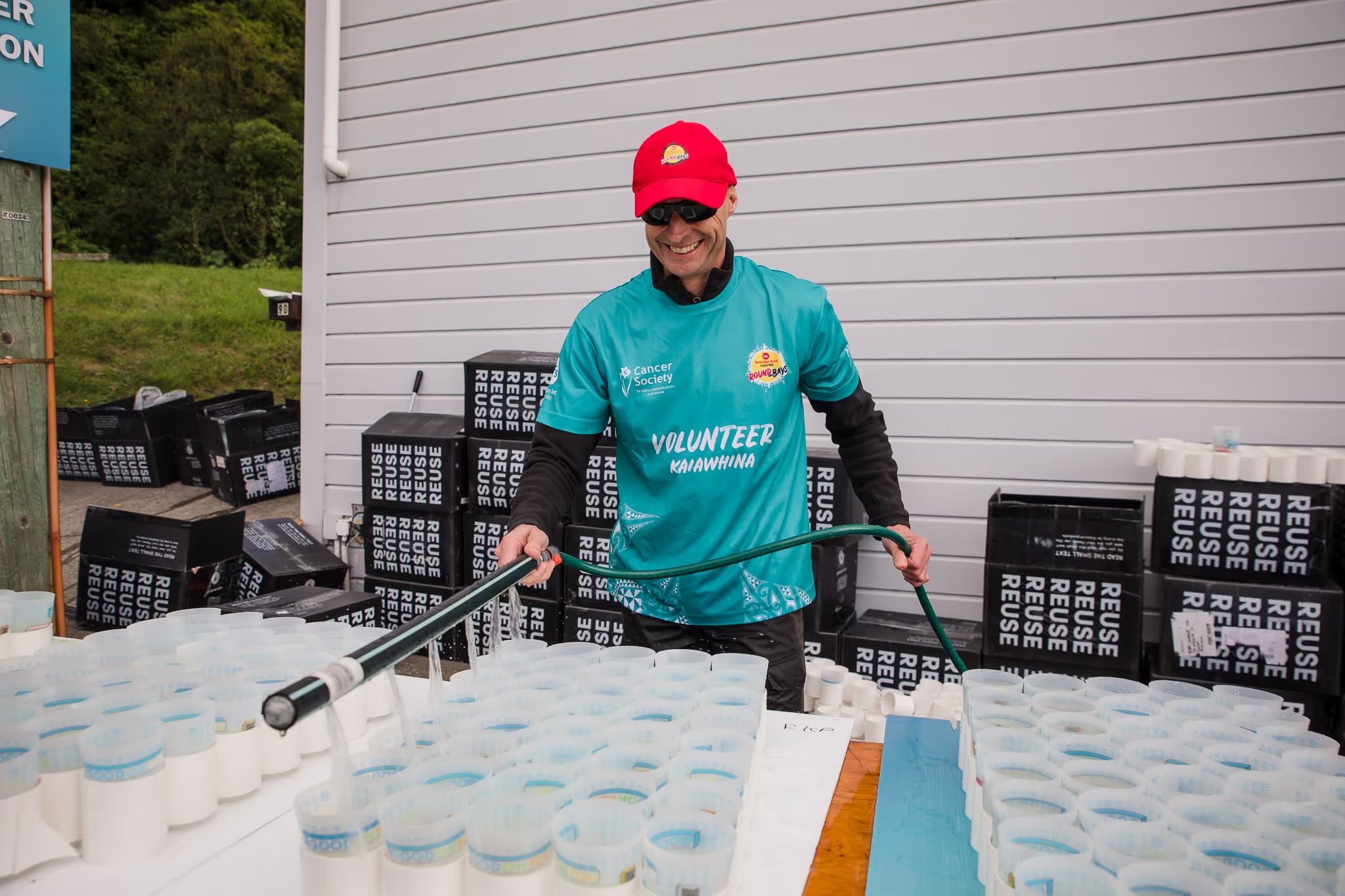
We provide water on course and at the start line as part of our duty of care to keep 50,000+ participants well-hydrated and all of those water stations including the finish chute use fully compostable or re-usable cups.
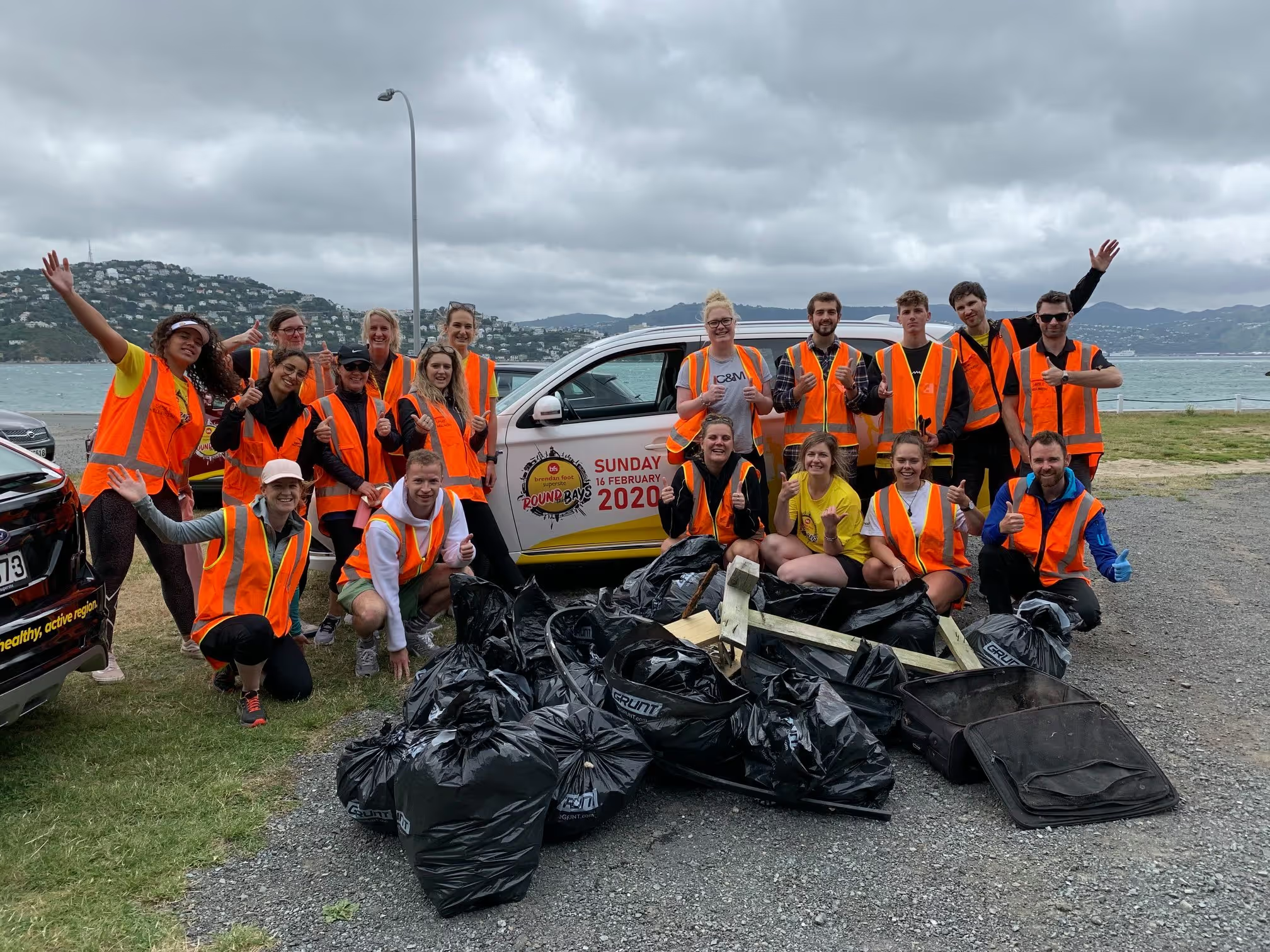
We work with a specialist waste management team to ensure no waste is left behind. The team sweeps after the event has finished and twice again over the succeeding two days, ensuring all rubbish is sent to the correct waste streams.
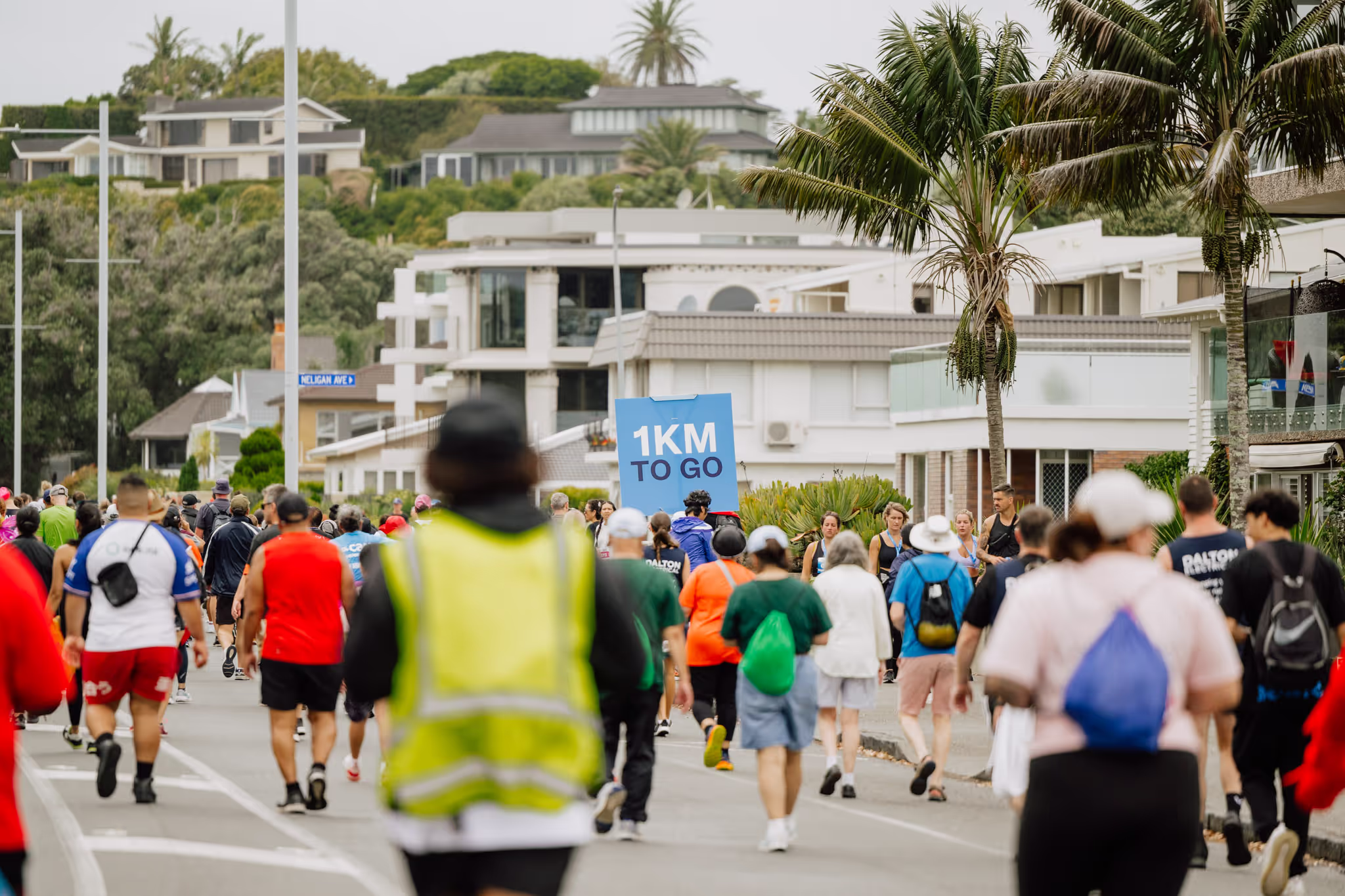
All the collected waste is hand-sorted into waste streams, including organics, recycling (cardboard, plastic, glass, etc) and general waste. The sorted waste is then taken to the appropriate facilities to be recycled, composted or sent to landfill.

Stormwater drains at and around all water stations are covered to prevent any cups going out to sea.
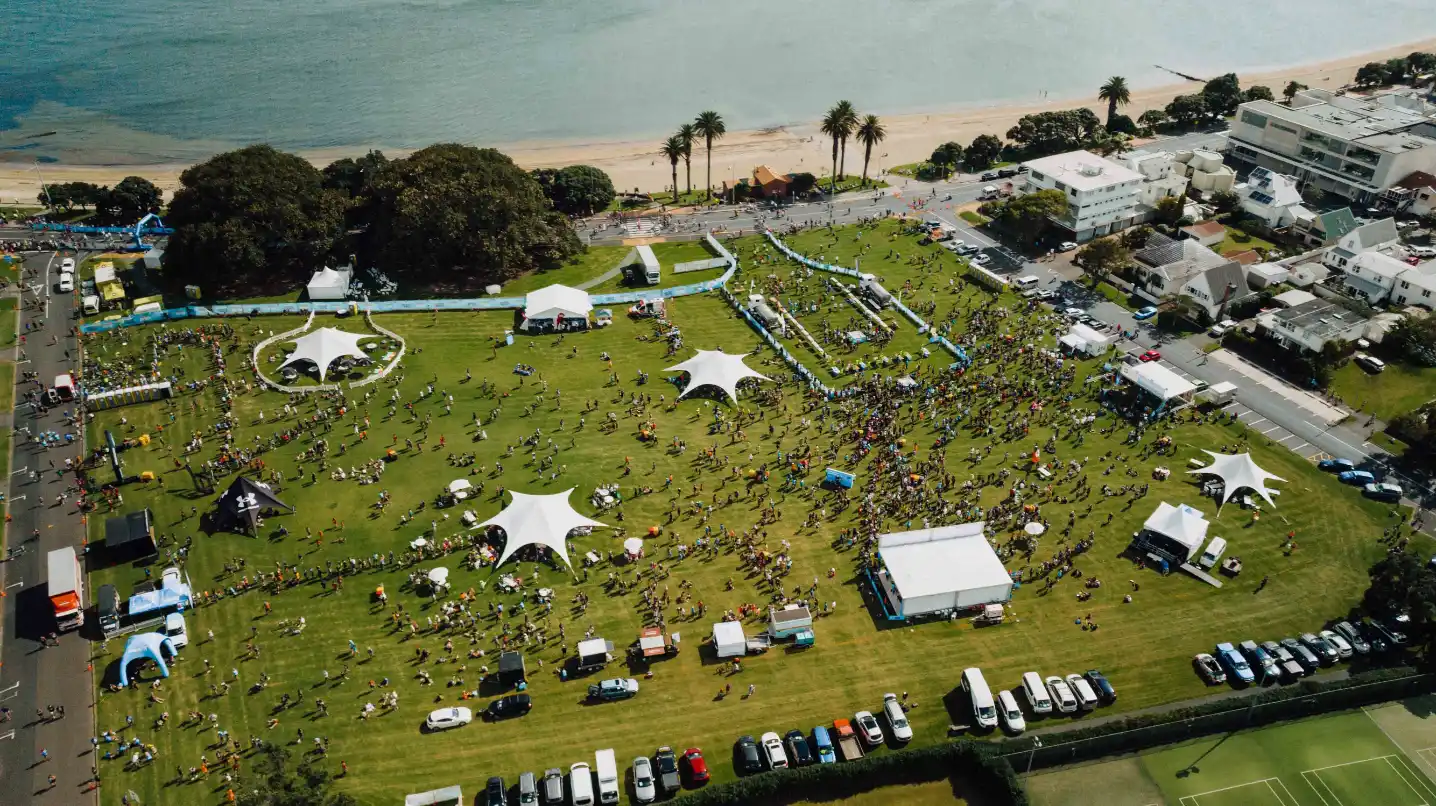
All official food vendors are required to use compostable packaging or reusable serviceware as part of their service agreements.

Hospitality site holders are encouraged to use either compostable packaging or reusable serviceware.
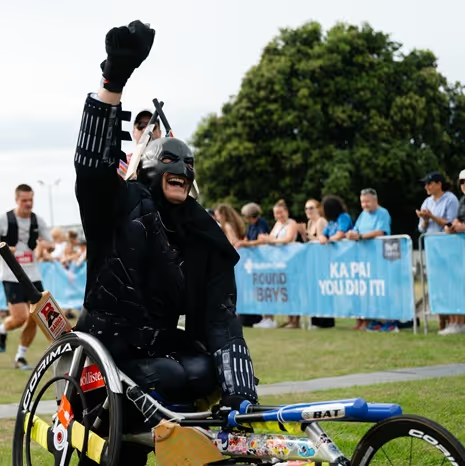
Event signage is reused where possible, with most signage being unbranded & undated for this purpose.
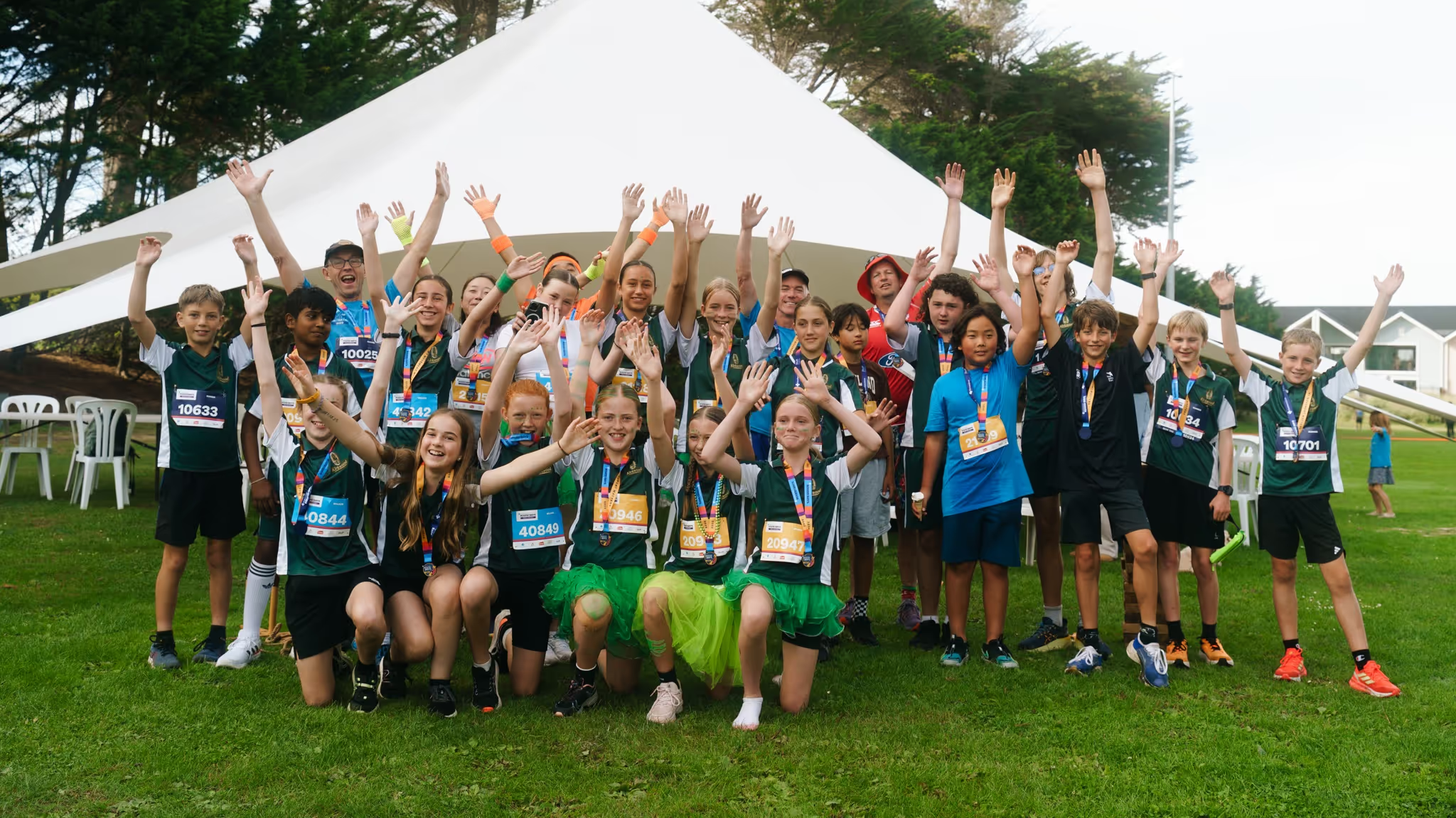
Any usable leftover food from our Schools Zone is taken to the Auckland City Mission.
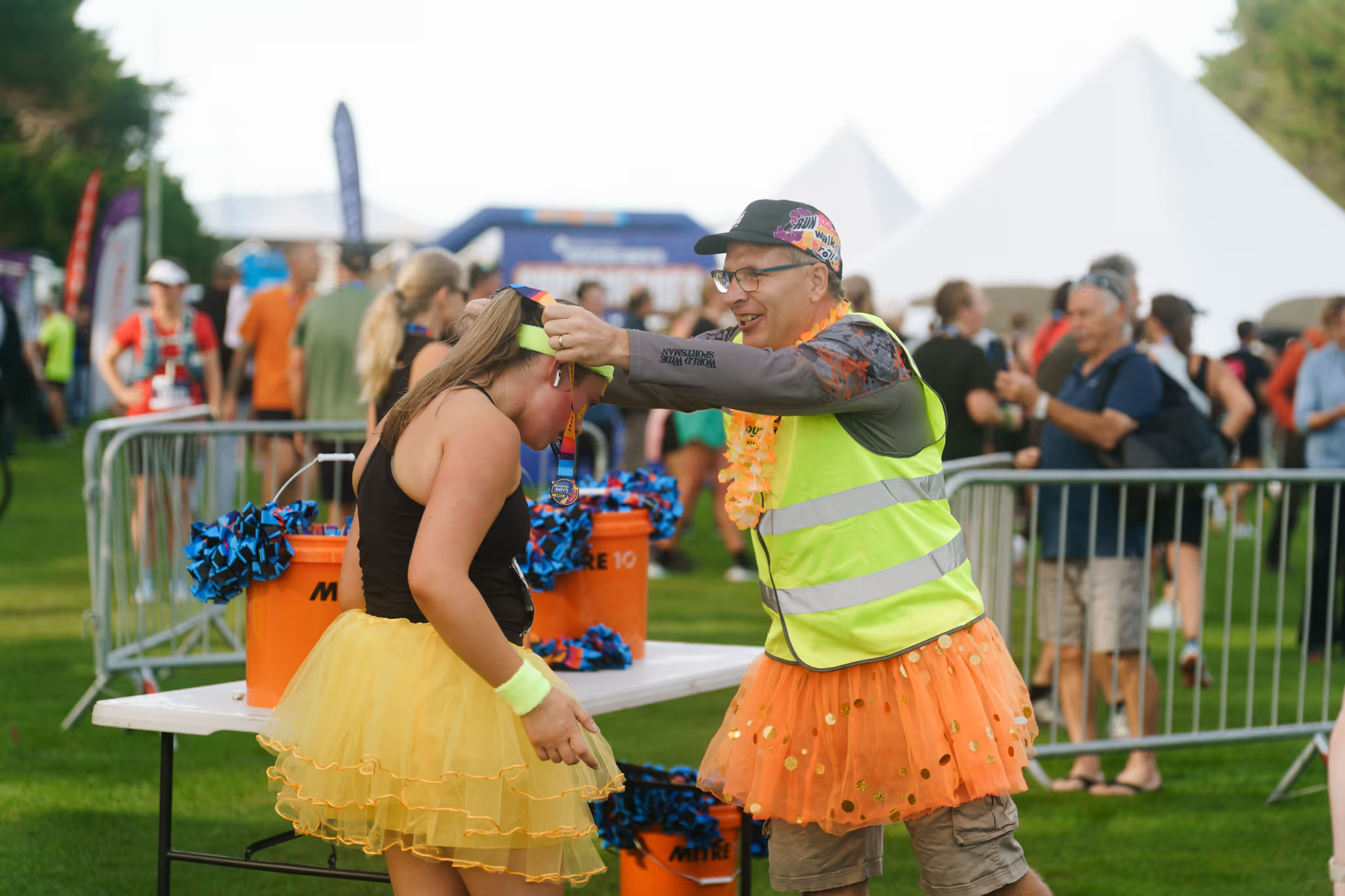
Any unused medals are taken to a scrap dealer to be turned into materials for new products.
Since the 2016 event, in Auckland we have diverted, on average, 72.4% of waste from landfill. That waste is split approximately as:
From there … our organics are sent to Envirofert where it is processed into compost and sold to a variety of commercial growers.
Our recycling is sent to Visy, where it is sorted into various categories for example, by types of glass and plastic - and then processed into recycled materials and new products.
We appreciate that sustainability is as important to you as it is to us, so we are grateful for your help in minimising waste wherever possible.
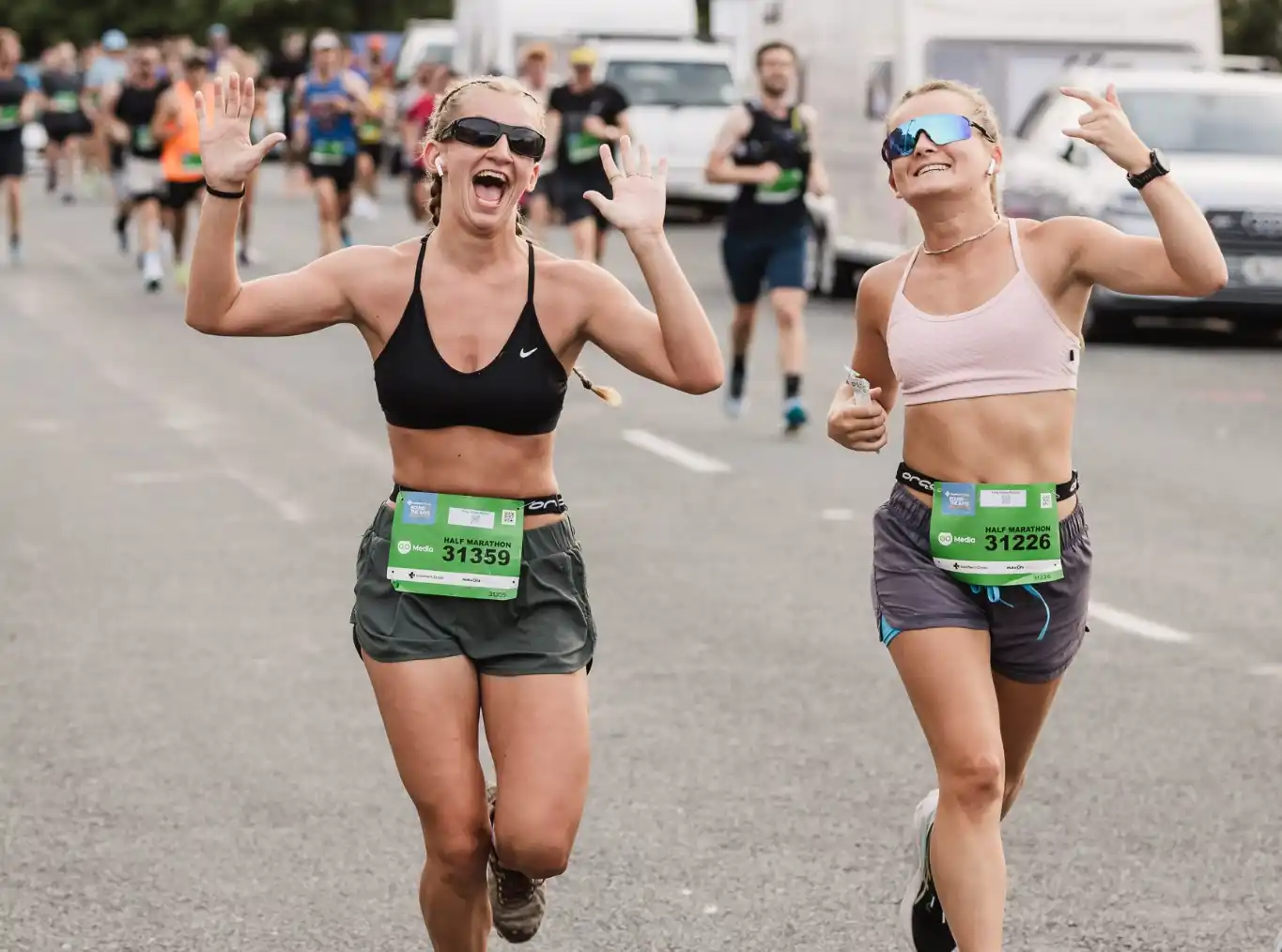
Be a tidy Kiwi – take your waste home for disposal, or put your waste in the correct bin! We'll have 3 different types of bins on the day and we'll do our best to make it clear as to what goes in what.
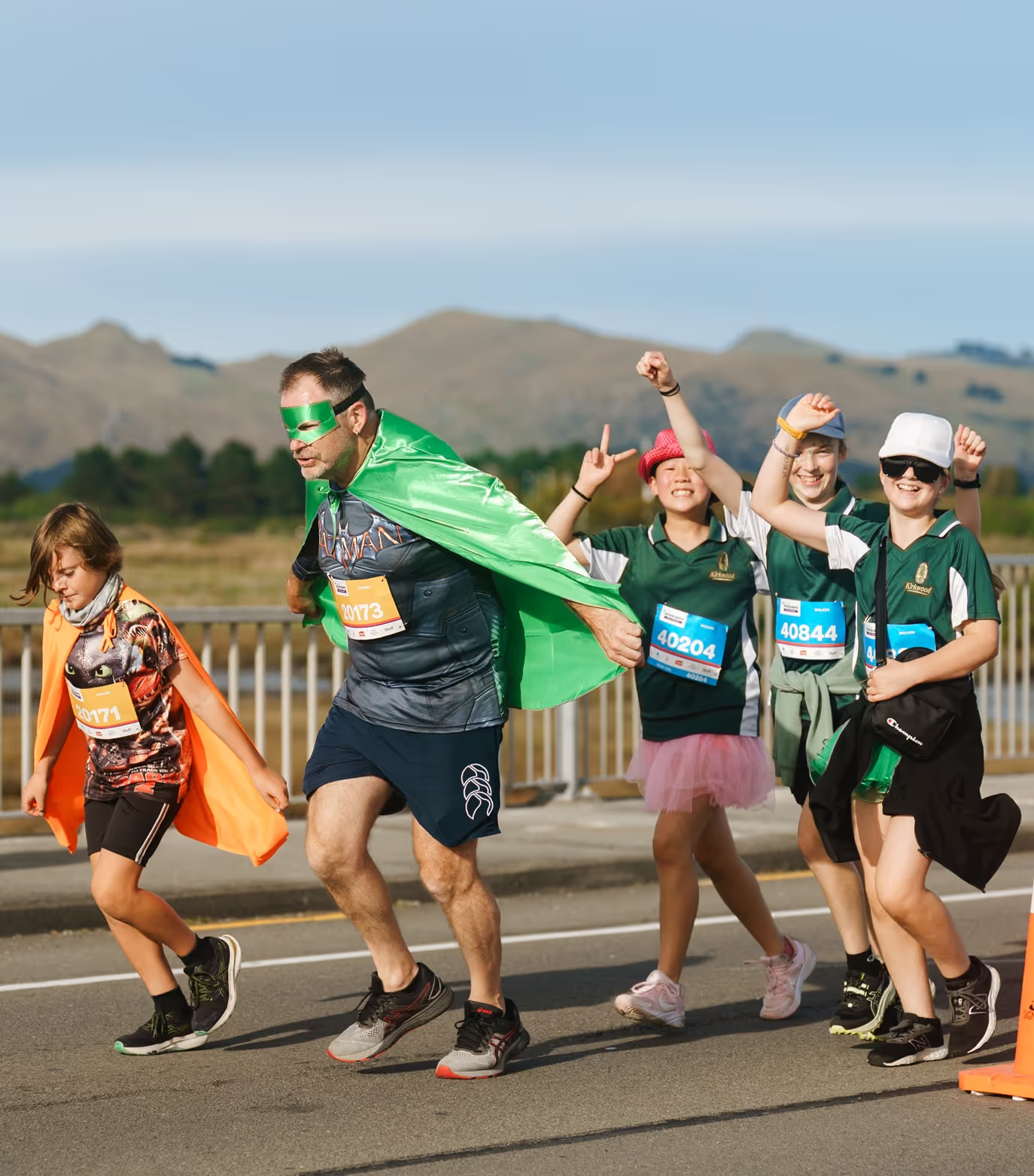
Alert event staff to any waste issues, such as full bins. We have a large team of waste staff so if you see a bin that is full let a staff member know so we can get it cleared as quickly as possible.
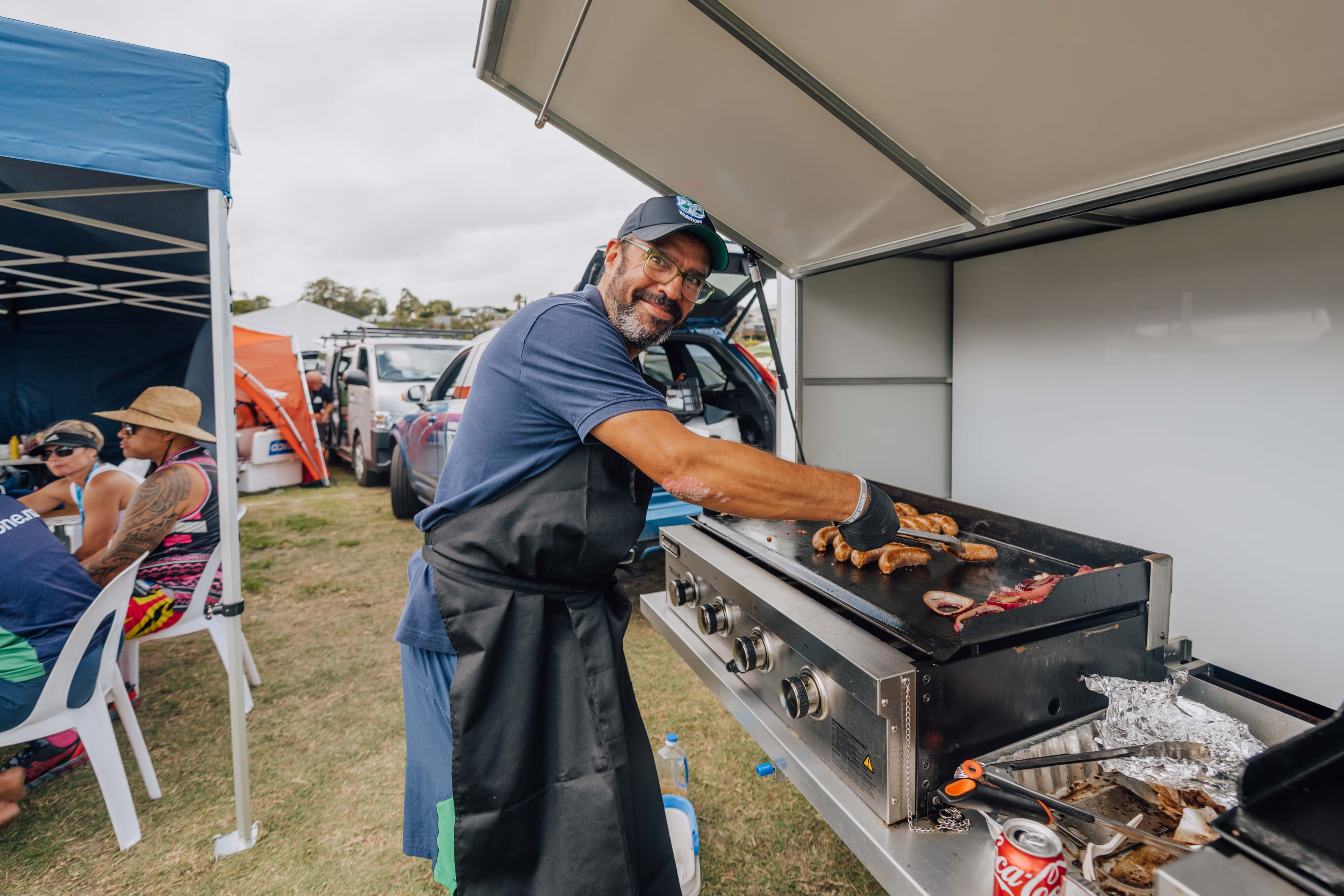
If you are a team with a hospitality site then bring only compostable or recyclable items. That means no polystyrene, plastic or paper serviceware (plates, cutlery & cups). Even better, bring reusable items and take them away with you to be reused.
Southern Cross Round the Bays is managed by Stuff Events. Stuff is a proud member of the Climate Leaders Coalition and has committed to a 25% reduction in scope 1* and 2* emissions by 2025. We're also working with our partners and suppliers to get a better picture of our scope 3* emissions so we can do our bit in this area too.
Click here to read about Stuff’s sustainability journey and what we’re doing to reduce emissions.
*Emissions are broken down into three categories by the Greenhouse Gas Protocol in order to better understand the source.
Scope 1 – All direct emissions from the activities of an organisation or under their control. Including fuel combustion on site such as gas boilers, fleet vehicles and air-conditioning leaks.
Scope 2 – Indirect emissions from electricity purchased and used by the organisation. Emissions are created during the production of the energy and eventually used by the organisation.
Scope 3 – All other indirect emissions from activities of the organisation, occurring from sources that they do not own or control. These emissions usually represent the greatest share of the carbon footprint, covering emissions associated with business travel, procurement, waste and water.